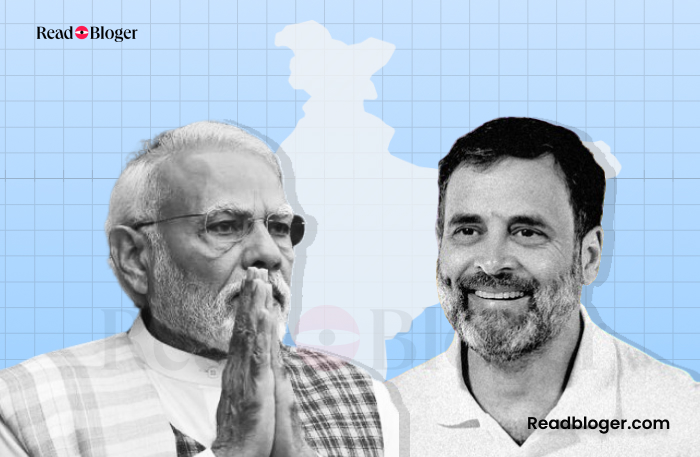फिर एक बार मोदी सरकार:
Narendra Modi is set to meet his allies today to discuss forming the next government, a day after his Hindu nationalist party lost its outright majority in parliament in a surprisingly close election results.
Are You Happy With Election Results In 2024 ? Mr Modi’s Bharatiya Janata Party (BJP) won 240 seats on its own in the general election results., 32 short of the halfway mark in the 543-member decision-making lower house, according to official results announced late yesterday.
The National Democratic Alliance (NDA) led by the BJP won 293 seats, more than 20 ahead of the 272 needed to form a government.
The opposition INDIA election results alliance, led by Rahul Gandhi’s centrist Congress party, won 230 seats, far more than was forecast. Congress alone won 99, almost double the 52 it won in 2019. The surprise jump has not just boosted Mr Gandhi’s standing, but the alliance is also discussing its own next steps and they have so far not conceded defeat.
The role of kingmaker for the next government now falls to two of the BJP’s key allies – Nitish Kumar and Chandrababu Naidu. Their parties, Janata Dal (United) and Telugu Desam Party, who have 12 and 16 seats respectively.
तीसरी बार फिर मोदी सरकार [ Election Results ]:
नई दिल्ली से भाजपा की उम्मीदवार बांसुरी स्वराज ने विश्वास जताया कि नरेंद्र मोदी के नेतृत्व वाली भाजपा एक बार फिर सरकार बनाएगी।
“मुझे पूरा विश्वास है कि आज भारत की जनता भाजपा की जन कल्याणकारी नीतियों को चुनेगी, हमारे प्रधानमंत्री नरेंद्र मोदी की विकास नीतियों को चुनेगी…मैं जानती हूँ तीसरी बार फिर मोदी सरकार।”
Reporting from Delhi:
Our correspondent Soutik Biswas analysed what the surprising results mean for the BJP, the opposition and Indian politics –
His big takeaways:
A dent in brand Modi: Modi’s popularity has been also attributed to his mastery of branding, but that has lost some of its shine, indicating that he is susceptible to anti-incumbency.
A return to coalition politics: If the BJP forms the government, it will be dependent on allies and will need to adopt a more consultative and deliberative approach.
A jolt to the dominant BJP: Mr. Modi’s party has dominated Indian politics for a decade. But Tuesday’s result has restored India to what many consider “normal politics”, with a range of parties sharing and competing for power election results.
A resurgent opposition: The results will energise the much-criticised Congress-led opposition.
Modi claims victory for alliance
Failure to win a decisive mandate from the Indian voter should take the Bharatiya Janata Party back to its ideological parent, the Rashtriya Swayamsevak Sangh. Saturday’s exit polls predicted a decisive victory for the BJP under Prime Minister Narendra Modi’s leadership, sending both party loyalists and the Sensex on a historic high. Tuesday’s results, however, brought both to a crashing halt. Amid the cacophony of TV anchors discussing the possibility of new political alignments, BJP president JP Nadda’s 18 May interview with The Indian Express must have come back to haunt the party.
A dent of Brand Modi:
Mr Modi’s popularity has been also attributed to his mastery of branding, transforming routine events into spectacles and astute messaging. A weak opposition and a largely friendly media also helped him build his brand.
The election results show that Brand Modi has lost some of its shine, indicating that even Mr. Narendra Modi is susceptible to anti-incumbency. In other words, he is not as invincible as many of his supporters believed. This offers renewed hope to the opposition.
BJP’s ‘Ghar Wapsi’:
“We were less capable in the beginning and needed the RSS. Today we have grown and are more capable. The BJP now runs itself,” Nadda had said while commenting on the RSS’ declining involvement in and influence on government affairs under Modi. His comment did not bode well with the RSS, which had birthed first the Bharatiya Jana Sangh in 1951 and later the BJP in 1980. Nadda’s comments brought to the fore something that has been brewing for long within the Sangh – the discord between the BJP and the RSS.
Quick Questions: Here’s what we know about India’s election results
1. Who won the election results? ( चुनाव में कौन जीता? )
Mr. Narendra Modi won an historic third consecutive term but the result was much tighter than most were predicting.
His BJP party won 240 seats, which is 32 short of the halfway mark in the 543-member decision-making lower house.
लेकिन प्रमुख सहयोगियों को ध्यान में रखते हुए, भाजपा के नेतृत्व वाले राष्ट्रीय जनतांत्रिक गठबंधन (एनडीए) ने 293 सीटें हासिल कीं।
यह पहले के पूर्वानुमान 400 सीटों से बहुत कम था।
India’s 2024 election results
2. Does Modi have the majority?
The opposition INDIA alliance, led by the Indian National Congress party, won 232 seats.
“Today’s victory is the victory of the world’s largest democracy,” Mr Modi told the crowd at his party’s headquarters, saying Indian voters had “shown immense faith” both in his party and his NDA coalition.
It’s the first time since his BJP swept to power in 2014 that it did not secure a majority on its own.
3. Have all the votes been counted?
Yes, all the votes have been counted.
4. Where can I find the results?
The results can be found on the election results Commission of India’s website.
To view results by state, click on the Parliamentary Constitutes section in blue, which will take you to a new page.
Then use the drop-down menu to select results specific to states.




